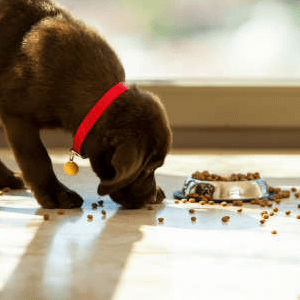Pet Nutrition and Exercise
Nutrition and Exercise for Dogs, Cats, and Rabbits
Your Pet's Weight & Eating Habits: What to look for and when it's time to bring your pet to see our veterinarian:
- Less than optimal body condition
- Often lies down during a walk or tires easily
- Is your pet getting all it's needed nutrients?
- Excessive Weight Gain
- Excessive Weight Loss
- Are you feeding your pet the right diet to get to your pet's optimal weight?
- Is your pet getting enough exercise?
- Often has shortness of breath or breathes heavily?
- Is your pet a picky eater or not eating enough?
- Is your pet overweight (obese) or overeating?
- Poor eating habits or not eating
- How much and how often do you feed your pet and what is it the recommended amount?
Pet Fitness & Weight Control (Nutrition and Exercise):
According to the American Pet Products Association (APPA - 2012), over 54% of pets are overweight. Pet obesity is a serious concern. Proper weight management reduces the chances of your pet developing certain medical problems such as Diabetes and Arthritis. Adequate exercise and a proper diet are the hallmarks to natural preventative pet care. Your pet's energy level will be greatly improved along with his/her cardiovascular health (heart function, blood circulation, etc). There is also evidence that leaner pets live almost two (2) years longer than their overweight counterparts.
A note about Obesity - "Obesity is considered an "epidemic" for dogs, cats and people. 56% of dogs, 54% of cats, and 69% of humans (adults over the age years of 20 years) in U.S. were considered overweight or obese in 2011." Source: http://www.americanhumane.org/assets/pdfs/pets-fact-sheet.pdf.
We do a thorough examination of your pet as well as do precise measurements to determine your pet's Body Mass Index (BMI). If your pet is underweight, there may be other causes outside of poor nutrition (malnourished) that we will need to address and potentially rule-out. As far as weight gain, some of the conditions that are either directly attributed to obesity or exacerbated by weight gain include:
- halitosis (cause of bad breath)
- pain and discomfort,
- gum disease and bleeding (gingivitis),
- periodontitis (inflammation of the tissue supporting and immediately surrounding the teeth),
- teeth or tooth abscess,
- tooth decay,
- chips, breakage, or cracks of the teeth
- fractures in the jaw bone (maxillae or mandible)
- oral ulcers, sores, or blisters of the mouth
- loose teeth
- and more
Make an appointment today: 954-757-1729
After doing a thorough examination of your pet as well as calculating your pet's Body Mass Index (BMI), we determine the right amount of calories, the type of diet, and quantity of food to feed your pet (whether for weight loss or weight gain). For overweight pets, we can further develop a weight loss program that is specific to your pet's current weight and overall state of health.
Pet Nutrition:
A recommended weight loss program may include a change in diets, either the type of food or the quantity of food given to your pet. We also carry a variety of prescription and non-prescription diets. We also do client education such as Nutritional Counseling so that you have expert veterinary advice as we answer all your questions. Nutrition Counseling is a way for us to help you navigate the large number of choices for pet foods and supplements. Each pet is unique for multiple reasons other than species and type of breed. Whatever the problem and whatever your concerns, we will determine the right mode of care for your pet's health care needs.
Exercise for Pets: Keep them active
Exercise is always good, but care should be taken to prevent over-exertion or over-heating (i.e. excessively high body temperature), especially for short nose breeds such as bulldogs. Also, be wary of the ambient (surrounding) temperatures especially if exercising your dog outside and/or during hot summer months of the year. Provide ample amounts of potable water for your dogs to drink when walking, running, or other exercise for your dogs. For cats, we recommend lots of playtime with toys (laser pointers or feather toys) that increases movement and tie into their natural curiosity and playful hunting instincts. Also, ensure your cat's water bowl has water for drinking.
Our goal is to help your pet live a long, happy, and healthy life.
